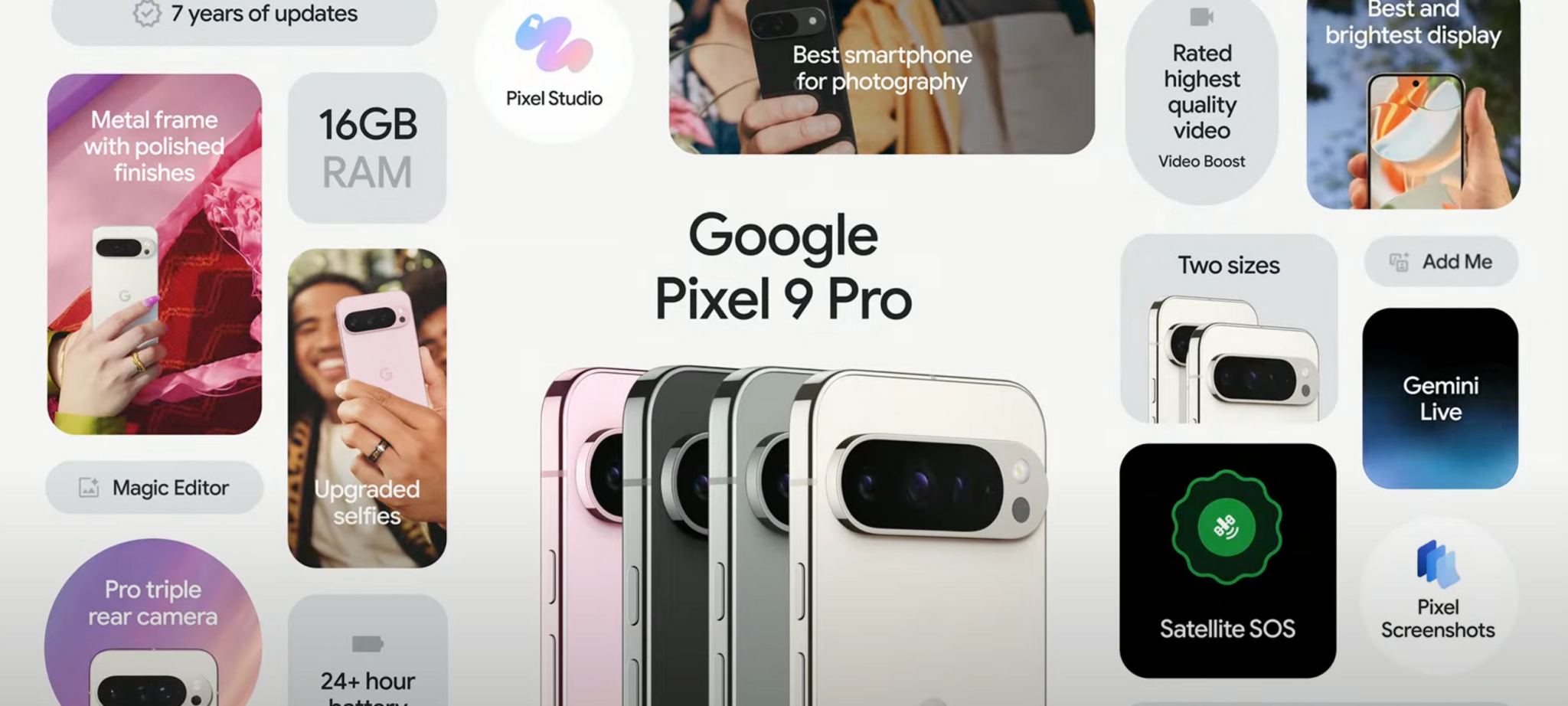In the rapidly evolving tech landscape, Google has taken significant steps to incorporate artificial intelligence (AI) into its hardware, as evidenced by the recent unveiling of the Pixel 9 Pro. This move, showcased at Alphabet’s Bay View campus in Mountain View, California, reflects Google’s ambition to stay competitive in a market increasingly defined by AI integration. The timing of this launch, ahead of the traditional autumn release and prior to Apple’s anticipated iPhone launch, underscores Google’s urgency to establish itself as a leader in the AI-driven consumer technology race.
How is Google Integrating AI into Its Products?
Google’s latest Pixel smartphones are a testament to the company’s commitment to embedding AI deeply within its devices. The Pixel 9 series, including the Pixel 9 Pro and the foldable Pixel 9 Pro Fold, comes equipped with Google’s new Tensor G4 chip, designed to enhance AI performance. Among the standout AI features is a Pixel-exclusive tool that allows users to search for information within screenshots, offering a practical application of AI in everyday tasks. Additionally, Android users can now leverage Gemini, Google’s generative AI-powered chatbot, which can be overlaid on any app to provide real-time assistance, answer queries, or generate content.
These advancements reflect Google’s broader strategy to make AI not just a feature but a fundamental component of the user experience. As Rick Osterloh, Google’s senior vice president of devices and services, stated, “We’re fully in the Gemini era,” signaling a shift towards more tangible, real-world applications of AI, beyond the numerous promises and “coming soon” announcements that have dominated the tech industry.
Can Google Compete in the Highly Competitive Smartphone Market?
Despite these innovations, Google faces an uphill battle in the global smartphone market, where it holds less than 1% market share, far behind giants like Samsung and Apple. Even in the U.S., Google’s 4.5% market share positions it as the fourth-largest smartphone maker, indicating significant room for growth. However, the Pixel line serves a dual purpose for Google. Beyond competing in the smartphone market, it acts as a showcase for advancements in the Android operating system, encouraging innovation across the broader developer ecosystem.
The inclusion of AI features in the Pixel lineup not only aims to differentiate Google’s products from those of its competitors but also to enhance the functionality and appeal of the Android platform. By offering advanced AI capabilities, Google hopes to attract both consumers and developers, thereby strengthening its position in the market.
What Future Developments Can We Expect from Google’s AI?
Looking ahead, Google’s AI ambitions extend beyond the current offerings. The Gemini Live feature, which allows users to engage in natural, conversational interactions with the AI, represents a significant leap forward. Although currently limited in scope, with functionalities like multimodal input expected to roll out later this year, Gemini Live hints at a future where AI becomes an even more integral part of everyday life. This development could give Google a competitive edge over rivals like OpenAI’s ChatGPT, particularly if Google’s promises of a longer context window and more advanced conversational abilities hold true in real-world applications.
In conclusion, Google’s latest innovations in AI integration demonstrate a clear strategy to enhance the user experience and solidify its place in the competitive tech landscape. While challenges remain, particularly in gaining market share, Google’s focus on practical, real-world AI applications could prove to be a decisive factor in its success.


